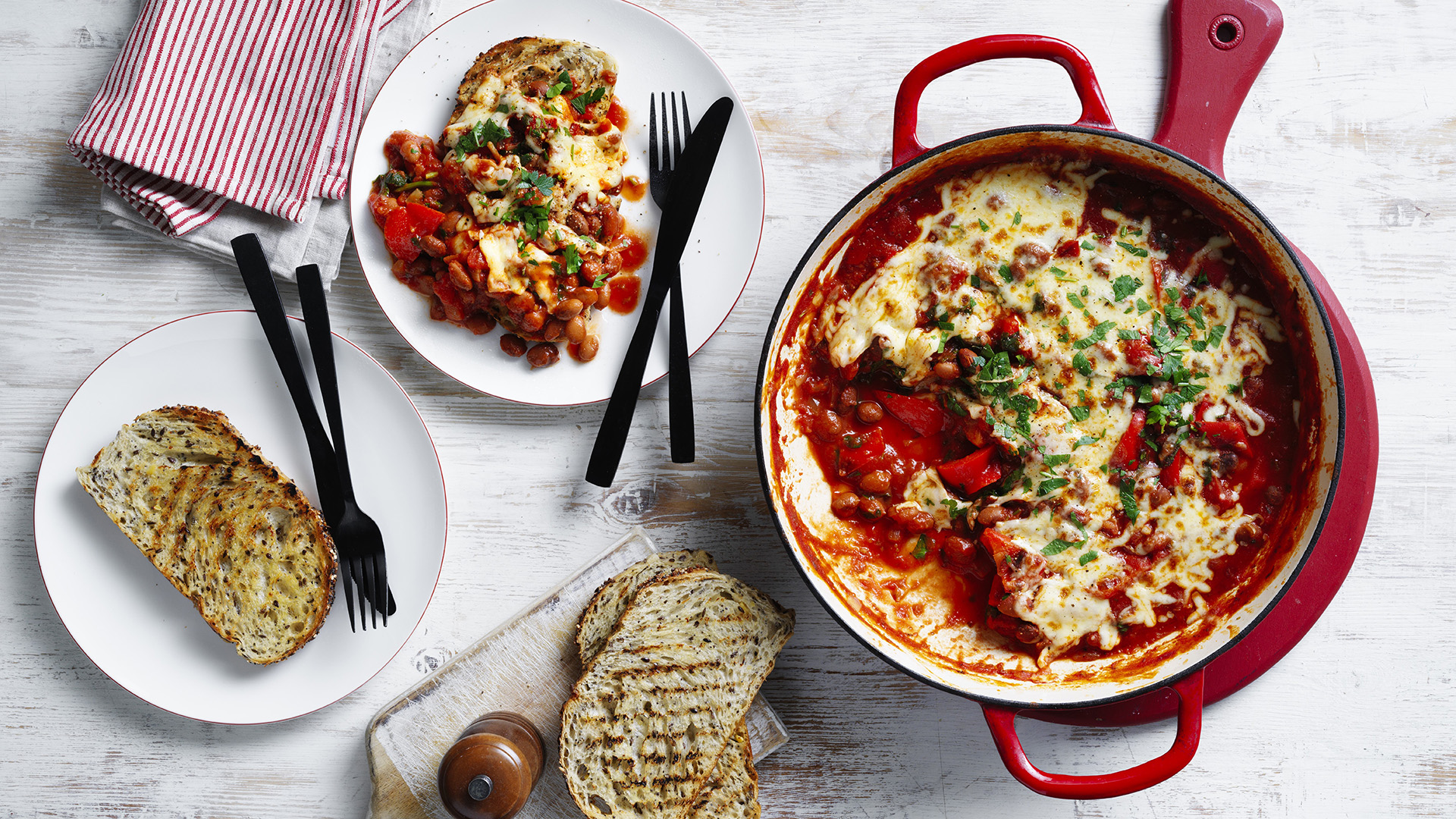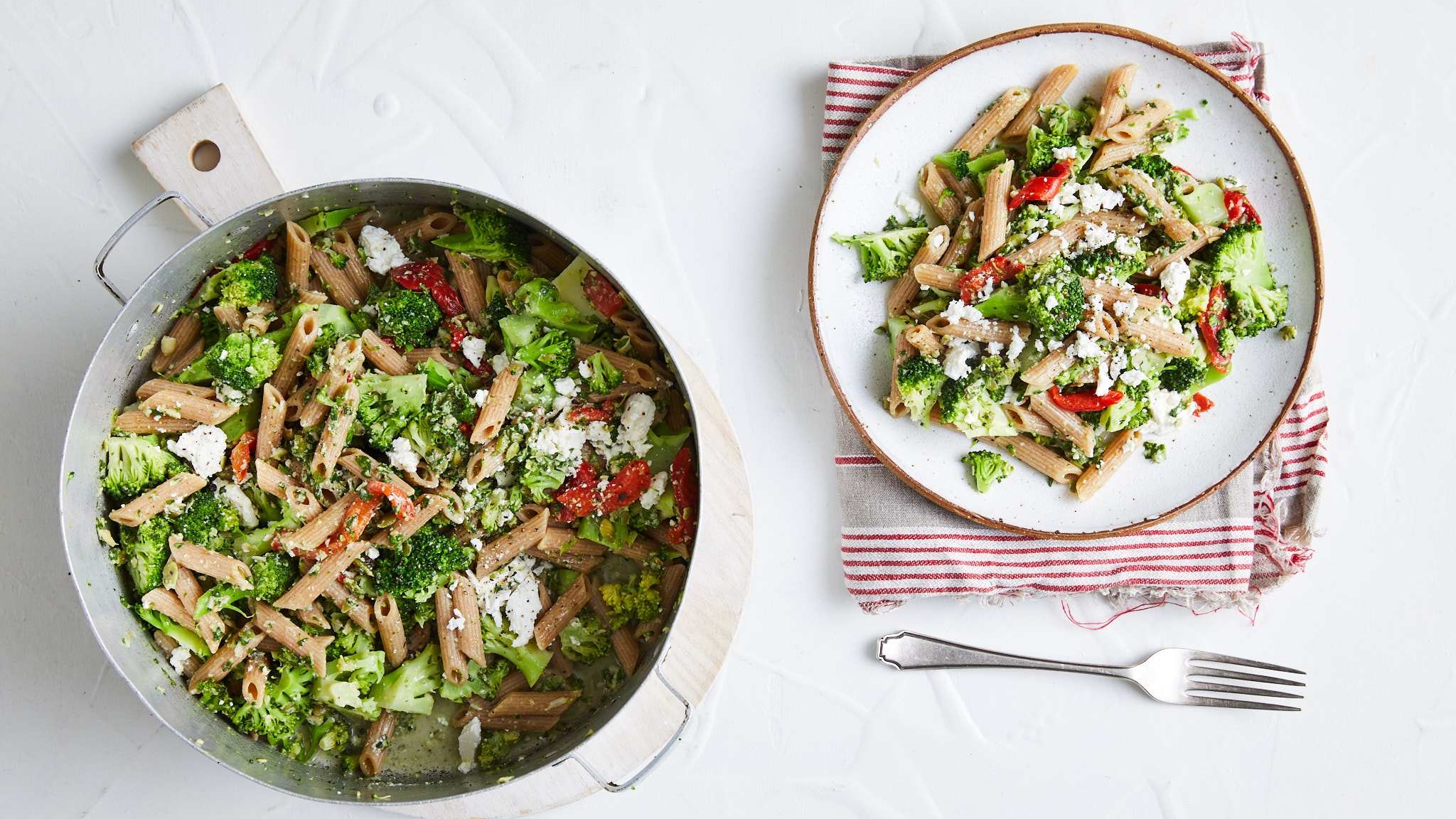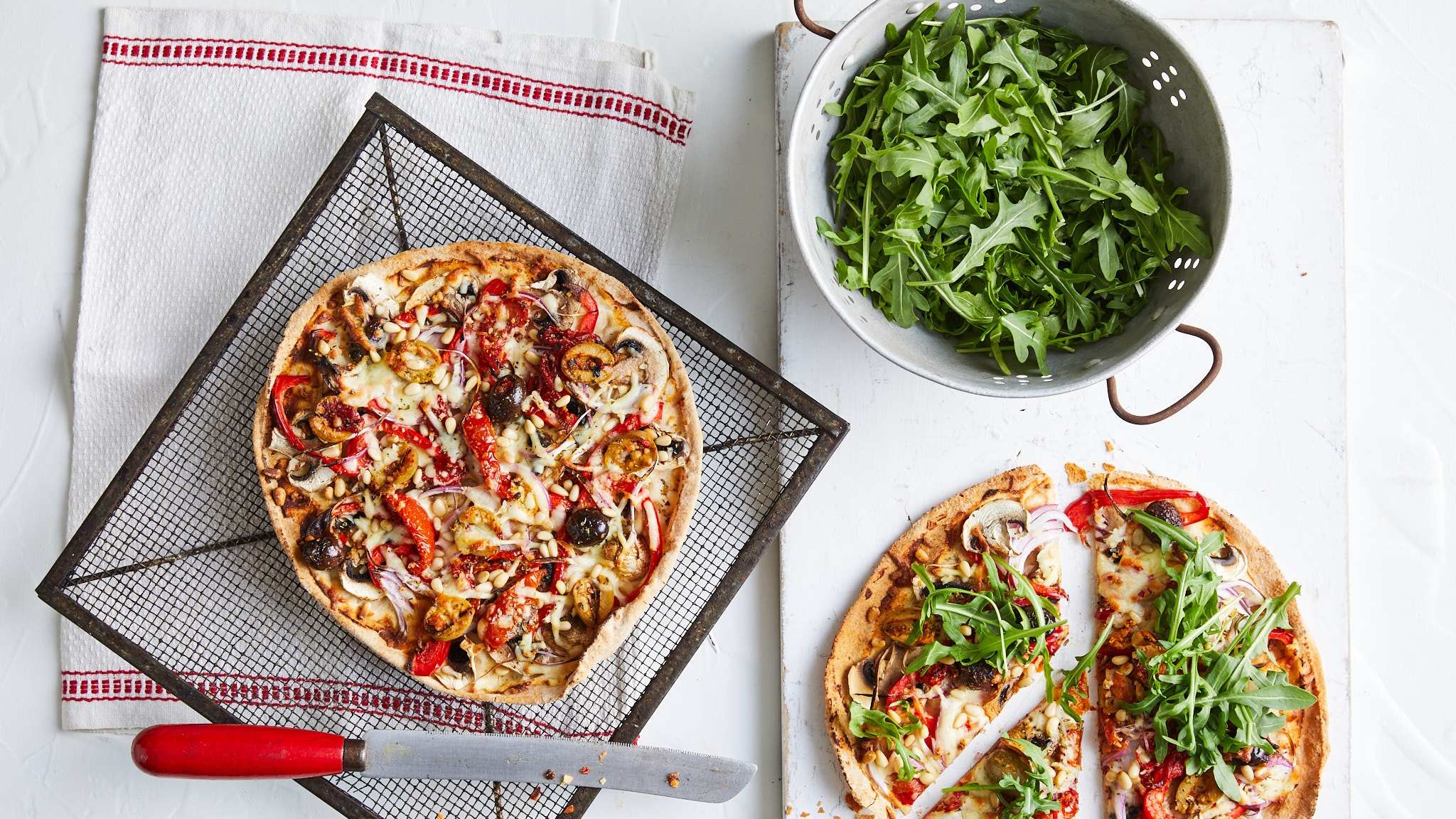
We are so glad you’re here! Let’s get started
Over the 4-week journey, we’ve created a variety of delicious heart-healthy vegetarian meals designed to help you follow our heart-healthy eating pattern. This selection covers diverse cooking styles, flavours and cuisines for you, your friends and family to enjoy.
You’ll build cooking confidence and expand your usual dinner lineup. From one-pot dishes to bowls, tacos, and bakes — we’ve got you covered!
Your weekly goals
- Save time and plan meals for the week using the resources and interactive tools provided.
- Be familiar with foods that make up a heart-healthy eating pattern.
- Master a delicious “step-by-step” recipe.
So what's for dinner?
Tofu and vegetable stir-fry

Recipe highlights
- Stir-frying is a healthy, quick, and versatile cooking method that's easy to master and adapt, based on the ingredients you have in your fridge and pantry.
- Unsalted roasted cashews, sesame oil and seeds provide a rich source of healthy fats beneficial for heart health.
- Tofu, unsalted cashews and soba noodles help make this a heart-healthy, plant-based meal.
- Soba noodles can be replaced with brown rice if preferred.
One pan beans pizzaiola

Recipe highlights
- Easy step-by-step recipe to help guide you to recipe success.
- One pan for fuss free cooking – simplifies meal prep, saves time and clean up!
- No-added-salt canned red kidney beans are a versatile and budget-friendly pantry staple. They're rich in fibre and a great source of heart-healthy, plant-based protein.
- If you have heart disease or high cholesterol, choose reduced-fat dairy.
One pot green goodness pasta

Recipe highlights
- Refrigerate any leftover pasta for lunch the next day. Simply reheat in microwave oven to serve.
- Broccoli can be swapped with any green vegetable (e.g., peas, spinach or green beans).
- Pepitas (pumpkin seeds) are rich in beneficial polyunsaturated fats.
- Penne can be replaced with any wholemeal pasta or brown rice.
- Freshly grated parmesan can be substituted for ¼ cup of packaged shredded parmesan if preferred.
- If you have heart disease or high cholesterol, choose reduced-fat dairy.
Vegan Buddha bowl

Recipe highlights
- Chickpeas, tofu and rice are heart-healthy, budget-friendly, plant-based pantry staples.
- Packets of diced pumpkin are available from the fruit and vegetable section in supermarkets. Alternatively, use ½ butternut pumpkin (700 g), peel and dice into 1cm cubes.
- Replace microwave rice medley with 1½ cups cooked brown rice or quinoa if preferred.
- Pumpkin and chickpeas can be roasted, and dressing can be prepared up to 2 days ahead. Keep in separate containers in the fridge.
- Beetroot can be replaced with canned beetroot slices or other vegetables you have on hand e.g. carrots.
Mediterranean antipasto pizza

Recipe highlights
- We’ve used wholemeal Lebanese bread to help speed up food prep. They're usually lower in salt and higher in fibre compared to commercial pizza bases. Check the label and choose the product with the lowest sodium value per 100g. Freeze to extend shelf life.
- Ricotta cheese, naturally lower in fat, serves as the white sauce for the pizza base and pairs well with our vegetable toppings!
- Pine nuts provide additional protein and healthy fats.
- If you have heart disease or high cholesterol, choose reduced-fat dairy.
Vegetable tagine with almond couscous

Recipe highlights
- We’ve used no-added-salt canned chickpeas, low salt stock cube and spices to help boost flavour and keep sodium levels in check!
- Olive oil and almonds help boost heart-healthy monounsaturated fats.
- Vegetables and dried fruit are naturally rich in fibre, which can help lower LDL-cholesterol.
- Dried apricots can be replaced with raisins or other dried fruit.
- Eggplant can be replaced with zucchini or mushrooms if preferred
Zucchini slice
.jpg?crop=1920.0%2C1080.0%2Cx-0.0%2Cy0.0&format=pjpg&auto=webp&crop=1920.0,1080.0,x-0.0,y0.0)
Recipe highlights
- Eggs are a pantry staple, versatile and nutritious ingredient to help you meet your daily protein intake.
- This recipe can be made ahead or frozen.
- Store any leftovers in a container in the fridge for up to 3 days. Add cold to lunchboxes or reheat in microwave to serve.
- This is an adaptable dish - easy to customise with other veggies or herbs. If you have heart disease or high cholesterol, choose reduced-fat dairy.
One pan beans pizzaiola
Ready in 30 minutes, this quick, budget-friendly and adaptable dish combines the rich flavours of Italian-inspired ingredients in a single pan.
Mediterranean antipasto pizza
Quicker than pizza delivery, this vegetarian meal features wholegrains, dairy, vegetables, and heart-healthy fats for a balanced dish.
Zucchini slice
This zucchini slice is a protein-packed, vegetable-rich dish — perfect for any meal and easy to pair with a fresh salad.
This week's healthy eating tips
Set yourself up for success in the kitchen!
Plan: save time, eat better, and spend less
- Think about how many meals you would like to cook at home this week and the number of people you will be cooking for. Consider your schedule — which days are busier?
- Involve family or other household members. Ask them to choose their favourite heart-healthy recipes.
- Batch cook and freeze — make a big batch of your favourite dish to have for leftovers or freeze to make busy days easier.
- Fruit, pre-cut vegetables, unsalted nuts and seeds or a tub of unflavoured yoghurt also make quick and easy snacks.
Shop: plan ahead and stick to your list
- Before shopping in-store or online, make a list of what you need and stick to it. This helps you avoid unnecessary purchases.
- Use our Weekly heart-healthy shopping list template to guide you, and familiarise yourself with ingredients that make up a heart-healthy eating pattern. Check your pantry, fridge and freezer for ingredients you have at home before going grocery shopping.
Food prep: save time by prepping ingredients in advance
- Think about which recipe ingredients can be prepped in advance, such as chopping vegetables the night before.
- This simple step helps cut down on cooking time and makes mealtimes smoother.
